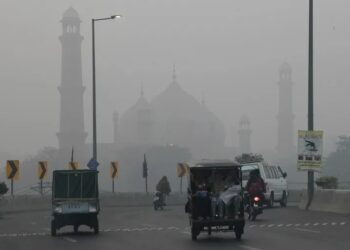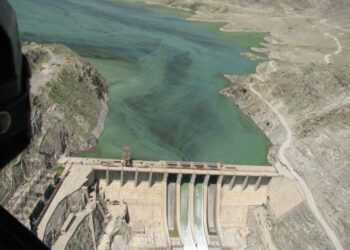Written by: Abdul Basit Alvi
Over the years, Pakistan has remained steadfast in its support for Kashmir, continuously advocating for the Kashmiri liberation movement and human rights. From the outset, Pakistan has highlighted the Kashmir issue on international platforms, particularly at the United Nations, where it has emphasized India’s human rights abuses in the region. Pakistan’s efforts to bring global attention to Kashmir have been crucial, drawing the focus of international powers and organizations. The United Nations Security Council (UNSC) has served as a significant platform for Pakistan’s calls for the implementation of resolutions on Kashmir, particularly the 1948 resolution that calls for a plebiscite to allow Kashmiris to determine their own future. While the plebiscite has not been held due to India’s opposition, Pakistan continues to press for its implementation, viewing the UNSC’s resolutions as both a legal and moral obligation. Through forums such as the UN General Assembly and human rights organizations, Pakistan has consistently highlighted the plight of Kashmiris, urging the international community to hold India accountable for its actions.
Pakistan has also raised the Kashmir issue in bilateral talks with India, although these dialogues have often been interrupted. Pakistan’s unwavering call for a peaceful resolution based on the principles of self-determination for Kashmiris remains a key element of its diplomatic stance. In addition, Pakistan has played a vital role in providing humanitarian aid to the people of Kashmir, especially during natural disasters, medical emergencies, and conflicts. One of the most significant humanitarian interventions occurred in 2005, when a devastating earthquake hit the Kashmir region, causing over 80,000 deaths and leaving many injured and homeless. In response, Pakistan sent relief teams, medical personnel, and supplies to the affected areas. Pakistani NGOs, such as the Edhi Foundation and The Citizens Foundation, were instrumental in providing medical care, food, and shelter to those in need. The Pakistani government also delivered tons of food, tents, blankets, and medical supplies, establishing emergency relief camps.
Beyond natural disasters, Pakistan continues to support Kashmiri refugees, many of whom have fled the region due to Indian violence or military operations. Thousands of Kashmiri refugees reside in Pakistan-administered Azad Jammu and Kashmir (AJK), where they receive education, healthcare, and financial assistance. Pakistan has long been committed to providing educational opportunities for displaced Kashmiri families, and the region has become home to numerous educational institutions offering free or subsidized education to Kashmiri children. Through these efforts, Pakistan has invested in building a strong educational infrastructure to support the development of Kashmiri communities in AJK. One notable example is Azad Jammu and Kashmir University, which provides higher education opportunities to students from both sides of the Kashmir region. Through scholarships, vocational training programs, and various capacity-building initiatives, the university has played a crucial role in empowering the Kashmiri population, equipping them with the skills to improve their livelihoods and contribute to the region’s economic and social development. Pakistan’s military has consistently supported Kashmiris by offering strategic, logistical, and moral assistance in their fight for self-determination. While Pakistan has always advocated for a peaceful resolution to the Kashmir conflict, it has also emphasized the necessity of Kashmir’s liberation from Indian control. The strategic doctrine of the Pakistan military reflects its unwavering commitment to the Kashmir cause, as it has been involved in numerous military operations aimed at protecting the rights of Kashmiris. Pakistan has consistently maintained that Kashmiris must be granted the right to self-determination, including the freedom to choose their political governance without external pressure. Additionally, Pakistan has provided full support to Kashmiri political leaders who advocate for the rights of the Kashmiri people. Leaders from various Kashmiri parties, including the All Parties Hurriyat Conference (APHC), have been invited to visit Pakistan to discuss Kashmir’s future. These leaders have participated in dialogues organized by the Pakistani government to represent the aspirations of the Kashmiri population. Furthermore, Kashmiri activists and intellectuals are regularly invited to international conferences and forums hosted by Pakistan, providing them a platform to voice their concerns and share their perspectives on the ongoing conflict in Kashmir. Pakistan’s recognition of Kashmiris as key stakeholders in the peace process has enabled them to challenge India’s narrative and call for a peaceful resolution.
Pakistan shares deep cultural, religious, and historical ties with the Kashmiri people, which have shaped its policy toward the region. These common bonds—of language, religion, and tradition—have reinforced Pakistan’s commitment to Kashmir’s cause. Both Pakistan and Kashmir share a similar cultural heritage, with many families having relatives across the border. This sense of solidarity has been expressed through cultural exchanges, art exhibitions, and media platforms that amplify the Kashmiri narrative. Pakistani artists, filmmakers, and writers have highlighted the struggles of the Kashmiri people, focusing on their aspirations for freedom and justice. This cultural diplomacy has further strengthened the emotional bond between the two regions and underscored Pakistan’s commitment to the Kashmir cause.
Kashmir has always been central to Pakistan’s foreign policy, and the deep emotional and cultural ties between Pakistan and Kashmir reflect a long-standing solidarity with the Kashmiri people. Both Pakistan’s founding father, Quaid-e-Azam Muhammad Ali Jinnah, and subsequent leaders have shown a profound commitment to the region. The importance of Kashmir for Pakistan has never been purely political; it is deeply tied to cultural and religious connections with the people of the region. From the very beginning, Pakistan’s leadership has championed Kashmir’s cause, standing by the Kashmiri people’s right to self-determination and their aspirations for freedom. Jinnah, in particular, demonstrated his unwavering commitment to Kashmir’s cause from the moment Pakistan was founded. His support for the Kashmiri people was not just a matter of political ideology but stemmed from the deep emotional, cultural, and religious ties between the region and Pakistan.
Jinnah’s first major public statement on Kashmir came shortly after Pakistan’s independence. In his address to the nation on August 15, 1947, he made Pakistan’s position on Kashmir clear. Jinnah expressed deep concern for Kashmir’s future, given its Muslim-majority population under the rule of a Hindu Maharaja. He declared that Kashmir was not merely a regional issue, but a matter of life and death for Pakistan. “We will go to any lengths to ensure that the rights of the Kashmiri people are protected and that their aspirations for freedom are realized,” Jinnah said. This speech laid the foundation for Pakistan’s unwavering commitment to the Kashmir issue and reaffirmed Jinnah’s belief that Kashmir was integral to Pakistan’s vision as a homeland for Muslims. In the early years after Pakistan’s creation, Jinnah made several efforts to ensure that Kashmir would become part of Pakistan. He vehemently condemned the decision of the Maharaja of Kashmir to accede to India, a move that was rejected by the Kashmiri people. Jinnah championed the right of the Kashmiri people to decide their own future, in line with the principles set forth in United Nations Security Council (UNSC) resolutions. When conflict erupted between India and Pakistan in 1947-1948 following the Maharaja’s decision, Jinnah offered both diplomatic and moral support to the Kashmiri people. The Pakistani military actively fought alongside Kashmiri forces to assist the people of Kashmir in resisting Indian control. Jinnah’s personal involvement in the issue demonstrated his deep commitment to the Kashmir cause, making it clear that Pakistan would never abandon Kashmir. This commitment to Kashmir continued under the leadership of Zulfiqar Ali Bhutto, who became Pakistan’s Prime Minister in 1971. Bhutto brought renewed attention to Kashmir, particularly on the global stage. His advocacy was marked by a strong stance in international forums and his determination to make Kashmir a central issue in Pakistan’s foreign policy. In 1972, during his address at the United Nations General Assembly, Bhutto described Kashmir as “the most dangerous conflict in the world” and reiterated Pakistan’s position that Kashmiris should be granted the right to self-determination. He emphasized that Kashmir was the core issue in Pakistan-India relations and that Pakistan would not back down from supporting the Kashmiri people. While the Simla Agreement, signed after the 1971 war, did not directly address Kashmir, Bhutto used it as a platform to continue advocating for the region. He reiterated that Kashmir’s final status should be determined through a plebiscite, ensuring the people of Kashmir could decide their future. Bhutto’s commitment to Kashmir was evident in his diplomatic efforts, where he consistently raised the issue of human rights violations in Kashmir and urged international bodies to call for a plebiscite in the region.
Benazir Bhutto, Pakistan’s first female Prime Minister, followed in her father’s footsteps in championing the Kashmir cause. Her leadership maintained Pakistan’s diplomatic support for Kashmir and worked to keep the issue in the forefront of global diplomacy. During her time in office, she spoke strongly at the United Nations and other international forums, condemning India’s human rights abuses in Kashmir and calling for a peaceful resolution through the implementation of UNSC resolutions. She ensured the Kashmir issue remained a global priority and expressed solidarity with the Kashmiri people during her visits abroad. In the early 1990s, Benazir Bhutto pushed for peace talks between India and Pakistan over Kashmir, although these efforts were often hindered by India’s reluctance to engage in meaningful dialogue. Nonetheless, her persistence demonstrated her unwavering commitment to the Kashmiri cause.
General Pervez Musharraf, who ruled Pakistan as a military leader from 1999 to 2008, also played a significant role in addressing the Kashmir issue. Musharraf’s government sought to open new dialogue channels with India in hopes of finding a peaceful resolution to the Kashmir dispute. He initiated back-channel diplomacy in the early 2000s, where Pakistan and India engaged in secret talks to explore various solutions. Musharraf adopted a “flexible” approach, aiming for a practical resolution to the issue. While these talks did not lead to a concrete resolution, they showed Pakistan’s willingness to engage in dialogue for peace and stability in the region. Despite this, Musharraf’s government maintained that the people of Kashmir must be allowed to exercise their right to self-determination, as stipulated in UN resolutions, and Pakistan’s commitment to the Kashmir cause remained firm.
All Pakistani political leaders have shown steadfast commitment to the Kashmir cause. From Quaid-e-Azam Muhammad Ali Jinnah to the current leadership under Shahbaz Sharif, the unwavering love and support for Kashmir reflect Pakistan’s dedication to the Kashmiri people’s right to self-determination. Through various means—whether diplomatic efforts, international forums, or public speeches—Pakistan’s leadership has consistently advocated for Kashmir’s cause. The sacrifices, support, and deep affection for Kashmir have become an integral part of Pakistan’s identity, representing solidarity with a region that shares cultural, religious, and historical bonds with Pakistan. The leaders of Pakistan have always viewed Kashmir as a cause worth fighting for, and their deep love and commitment to the Kashmiri people remain a driving force in the ongoing struggle for justice and peace. For Pakistan, Kashmir is not merely a territorial issue, but a matter of profound national significance, deeply rooted in emotional, cultural, and religious ties to the region. Over the years, the Pakistan Army has played a vital role in supporting the Kashmir cause, standing as a guardian of the Kashmiri people’s aspirations for self-determination. The sacrifices, courage, and dedication of the Pakistan Army in Kashmir serve as a testament to its unwavering commitment to the region.
Following the 1947 partition of British India, the princely state of Jammu and Kashmir became the focal point of conflict between India and Pakistan. Despite the region’s Muslim-majority population, the Maharaja of Kashmir chose to accede to India, sparking a fierce war. Motivated by the desire to support the Kashmiri people’s right to self-determination, Pakistan mobilized its military forces to assist the local population in resisting Indian forces. While initially not directly involved, Pakistan recognized the strategic importance of Kashmir, and volunteers from Khyber Pakhtunkhwa and Azad Jammu and Kashmir (AJK), including tribal forces, joined the struggle. The Pakistani government soon deployed the Pakistan Army to aid the Kashmiris, engaging in combat operations to secure parts of the region. Though Pakistani forces achieved initial successes, the war ended with a UN-mediated ceasefire in 1948. Pakistan secured control over Azad Jammu and Kashmir (AJK) and the Gilgit-Baltistan region, but the larger issue of Kashmir’s final status remained unresolved. The sacrifices of the Pakistan Army during this first conflict, with thousands of soldiers either losing their lives or being wounded, set the foundation for Pakistan’s continued involvement in Kashmir.
In 1965, tensions between India and Pakistan flared again over Kashmir, resulting in a full-scale war. The Pakistan Army, despite being outnumbered and outgunned by the Indian military, demonstrated remarkable courage and strategic brilliance in defending Pakistan’s borders and the Kashmiri population. Pakistan’s military strategy during the 1965 conflict involved Operation Gibraltar, which aimed to infiltrate Indian-administered Kashmir and support local freedom fighters. The Pakistan Army worked alongside Kashmiri freedom fighters, engaging Indian forces and pushing towards Srinagar, the capital of Jammu and Kashmir, with the goal of liberating Kashmir and allowing its people to determine their own future. The Pakistan Army’s notable contributions during this war included fierce defenses against Indian attacks, including the Battle of Lahore and the Battle of Sialkot. Pakistani forces held their ground, inflicting significant losses on the Indian military. Air operations, ground offensives, and coordinated attacks displayed the resilience and bravery of the Pakistan Army in the face of overwhelming odds. Though the war ended in a UN-mandated ceasefire, it reinforced Pakistan’s commitment to the Kashmir cause, with the sacrifices of the Pakistan Army in 1965 marking a significant chapter in this ongoing struggle.
The Kargil conflict of 1999 added another crucial chapter to Pakistan’s military history in relation to Kashmir. In this conflict, which took place in the Kargil district of Indian-occupied Kashmir, Pakistani soldiers, along with Kashmiri freedom fighters, infiltrated the area to secure strategic positions along the Line of Control (LoC). The Kargil conflict is remembered for the immense courage and sacrifices of the Pakistan Army, which fought valiantly in challenging terrain, often at high altitudes. The Pakistan Army’s Special Services Group (SSG) and other elite units played a vital role in securing mountain posts and engaging Indian forces in intense combat. Despite limited resources and the difficult terrain, Pakistan’s military exhibited extraordinary skill and perseverance. While the conflict ultimately escalated into a full military engagement, international pressure led to a ceasefire. Although the war did not result in a decisive victory for either side, the sacrifices of Pakistani soldiers during the Kargil conflict remain unforgettable, marking yet another significant chapter in the struggle for Kashmir. Hundreds of soldiers sacrificed their lives, and many more were injured in one of the most intense and brutal conflicts over Kashmir. In the aftermath of the Kargil conflict, Pakistan’s military leadership and government reaffirmed their commitment to Kashmir, stressing that the region’s final status must be determined in line with UN resolutions and the aspirations of the Kashmiri people. The Line of Control (LoC), which separates IIOJK and AJK, remains one of the most heavily militarized borders globally. The Pakistan Army continues to play a vital role in defending the region from Indian military incursions and artillery fire. Pakistani soldiers continue to make the ultimate sacrifice in skirmishes along the LoC, defending the territorial integrity of Azad Kashmir and the Gilgit-Baltistan region, while also providing moral and logistical support to the Kashmiri people. The Pakistan Army is actively engaged in ensuring the security of those living in AJK. Their presence not only safeguards against Indian provocations but also contributes to disaster relief, infrastructure development, and humanitarian aid for the local population.
The people of AJK enjoy full independence to live and work freely throughout Pakistan. The law and order situation in AJK is commendable, and residents have access to all rights. In contrast, since 1947, Indian security forces have faced allegations of committing widespread human rights abuses against the population of IIOJK, especially after the freedom movement intensified in the late 1980s. The Indian government has been repeatedly criticized for its heavy-handed tactics, with numerous reports from human rights organizations detailing the abuses committed by Indian military and paramilitary forces in the region.
One of the most alarming forms of violence has been the indiscriminate killing of civilians. Tragic events like the 1989-90 mass killings, the Chota Bazar massacre (1990), and the rapes in Shopian and Handwara (2009) underscore the brutality endured by the Kashmiri people. Civilians, including women and children, have often been caught in the crossfire between freedom fighters and Indian forces. Thousands have suffered enforced disappearances, with many families left without answers about their loved ones’ fates. Amnesty International and Human Rights Watch have documented systematic torture, including beatings, electric shocks, sexual violence, and forced confessions. Sexual violence has been weaponized as a tool of intimidation, exemplified by the horrific Kunan Poshpora mass rape incident (1991), in which more than 30 Kashmiri women were allegedly raped by Indian soldiers.
These abuses have cultivated a culture of fear and trauma among the Kashmiri people living under military occupation. The Indian government has frequently imposed curfews and communication blackouts in Kashmir, particularly during periods of political unrest. The 2019 revocation of Article 370, which granted special autonomy to Jammu and Kashmir, resulted in an intense lockdown. Thousands of Kashmiris were placed under house arrest, internet services were suspended, and severe movement restrictions were enforced. This move is seen as an attempt to suppress dissent and prevent the international community from witnessing the scale of violence.
Laws such as the Armed Forces Special Powers Act (AFSPA) have granted Indian military forces immunity from prosecution for abuses. Under this law, soldiers can arrest individuals without a warrant, and their actions are rarely subjected to legal scrutiny.
The desire for Kashmir’s accession to Pakistan is deeply embedded in the region’s history, religion, and political aspirations. The majority Muslim population of Kashmir shares profound religious, cultural, and historical ties with Pakistan. Kashmiris see Pakistan as their natural ally due to their shared Muslim identity, in contrast to India’s predominantly Hindu character. This connection has been further solidified by Pakistan’s unwavering support for Kashmiri self-determination on the global stage. Over the years, Kashmiris have felt politically marginalized by the Indian state. The enforcement of Indian law, economic policies, and military presence has fueled widespread resentment towards New Delhi. Kashmiris feel that their cultural and political rights are stifled under Indian governance and believe that joining Pakistan would grant them greater autonomy and a stronger voice in the political landscape. Pakistan has been a staunch advocate for the Kashmiri cause, using diplomatic avenues to urge the international community to recognize Kashmir as a disputed territory. It has consistently provided moral and diplomatic support to the freedom movement, especially during the 1980s and 1990s. For Kashmiris, Pakistan stands as a symbol of unwavering support for their struggle.
The bond between the people of Pakistan and Kashmir is mutual, with both nations expressing love and solidarity. This commitment has been consistently demonstrated by Pakistan’s civilian and military leadership. During a recent visit to Muzaffarabad on Kashmir Solidarity Day, the Pakistani Army Chief reaffirmed Pakistan’s strong dedication to the Kashmir cause, declaring that Kashmir is the “jugular vein” of Pakistan and that no one can separate it. He emphasized that Pakistan has fought three wars for Kashmir and would be ready to fight ten more if necessary. Kashmiris deeply appreciate Pakistan’s ongoing commitment and support, urging the global community to pressure India to cease human rights violations and atrocities, and to grant them the right to self-determination.

























